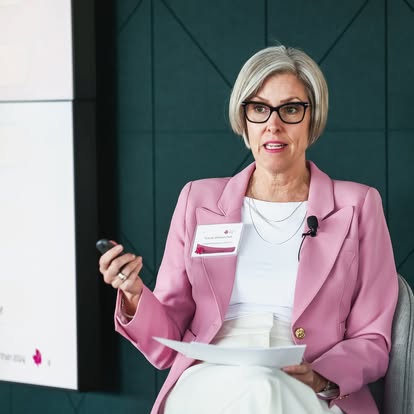In North Vancouver, Heather Taylor spends much of her time volunteering to tackle the challenges of affordability and food security.
It’s given her a front-row seat to how community needs and energy policy overlap — especially for women.
“Women tend to feel economic impacts first. They see the connection between what’s happening in the economy and their daily lives,” said Taylor, senior manager of social performance with Western LNG, a partner in the proposed Ksi Lisims project led by the Nisga’a Nation.
More than 80 per cent of engaged women nationwide believe expanding Canada’s energy sector would raise the country’s standard of living, according to a new report by Canada Powered by Women, where Taylor serves on the board.
The advocacy group defines “engaged” women as politically aware, economically literate, and invested in the country’s future, estimating there are about 6.7 million of them across Canada.
In a Leger survey conducted earlier this year, eighty-five per cent agreed Canada should build more pipelines to reduce dependence on the U.S.
“Women all across Canada generally hold very similar opinions on these issues and they feel strongly about it,” Taylor said.
“I’m an Albertan but I moved to B.C. four years ago to work. I always thought people in B.C. think differently but these results show that’s incorrect.”
Building on the survey, Canada Powered by Women hosted workshops this spring in Toronto, Vancouver and Calgary, drawing more than 550 participants from across sectors.
The discussions echoed the survey’s findings, said CEO Tracey Bodnarchuk.
“We are seeing the highest levels of acceptance for Canadian energy since we began polling engaged women across the country about these issues in 2023,” she said.
“This level of support reflects a sense of urgency and that we need to start moving forward.”
The poll results align with other surveys showing broad support for Canada’s energy sector among both men and women.
That includes an October Leger poll in which 72 per cent of Canadians said new pipelines are important to the country’s economic future.
Economic threats from U.S. President Donald Trump have added to the appeal of Canadian energy independence, Taylor said.
“These issues are very much at the forefront of Canadians’ minds,” she said.
“Our research shows Canadian women care deeply about what’s happening in the economy, and how it affects their daily lives.”
The survey and workshops also revealed that even many engaged women aren’t aware of the extent of Canada’s pipeline constraints — including the fact there’s no east-west oil pipeline through the country — Taylor said.
“If engaged women don’t know, the larger public definitely won’t,” she said.
“Part of that may be because we live in an energy-secure country,” she added.
“There are no real challenges when it comes to heating or cooling our homes. But it’s important for people to understand where their energy comes from — and how fragile that system can be, and how much policy shapes it.”
The unaltered reproduction of this content is free of charge with attribution to the Canadian Energy Centre.

